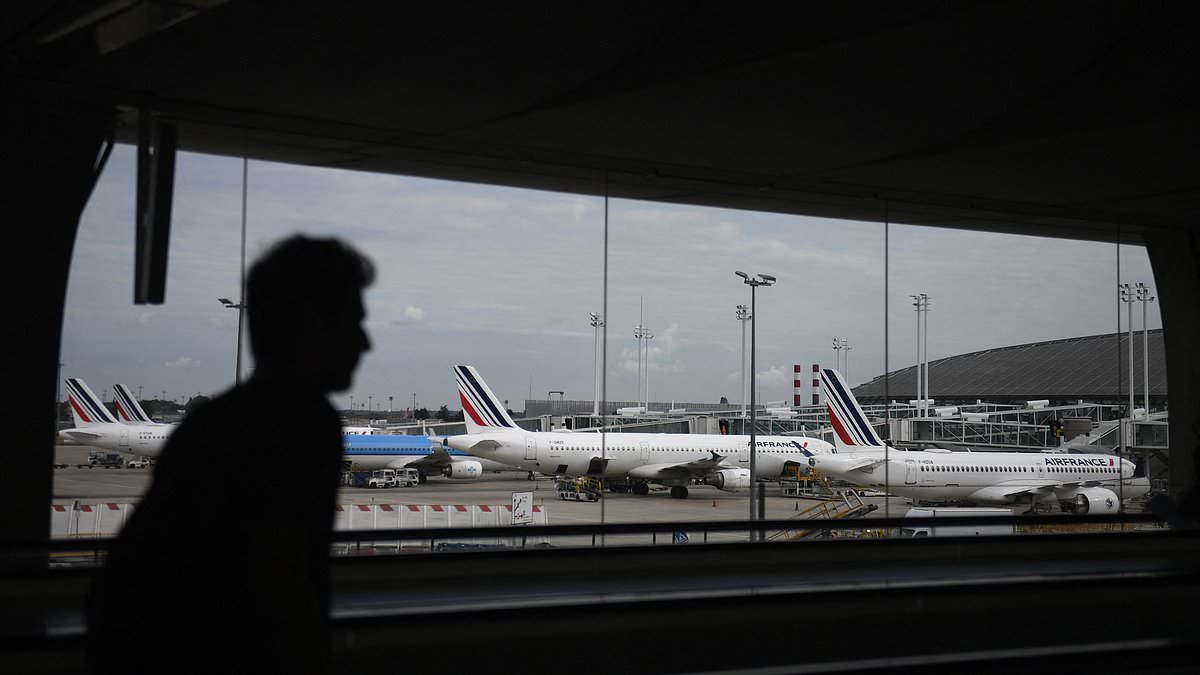A suspected Russian-Ukrainian terrorist has been arrested in Paris after causing an explosion close to the city’s biggest airport.
The blast at Charles de Gaulle led to the arrest of the 26-year-old, who has not been named, but who originally comes from the war-torn Donbas region of Ukraine.
It happened on Monday afternoon, just two days before world leaders including US president Joe Biden flew into the French capital in time for the D-Day 80th anniversary commemorations.
The airport suspect suffered serious burns to the face and an arm, but was afterwards able to communicate with officers from the General Directorate of Internal Security (DGSI) – France’s domestic security service.
Anti-terrorism prosecutors were also informed, and a formal investigation was opened into a variety of alleged offences.
‘Initial findings revealed products and materials intended for the manufacture of explosive devices on site,’ a source at France’s national anti-terrorist prosecutor’s office told news outlet BFMTV.
‘One of the improvised explosive devices exploded. The hotel had to be evacuated.
‘The man, of Russian and Ukrainian nationality, who was conscious despite his injuries, explained to investigators that he had built home-made batteries for mobile phones when one of them exploded.’
The batteries were covered in plastic, with a match, powder and barbecue lighters inside a package, said the source.
As well as improvised bomb-making equipment, DGSI investigators found ‘multiple passports’ in the man’s luggage, he added.
The explosion was in an unidentified airport hotel in Roissy-en-France, and it was evacuated and then closed afterwards.
The suspect is said to be recovering well from his wounds, and cooperating with officials.
Anti-terrorism prosecutors confirmed they have opened an investigation into ‘participation in a terrorist criminal association with a view to preparing crimes of attacks against persons, possession of an incendiary or explosive substance or product or of elements intended to compose an explosive device with a view to preparing destruction, and damage or harm to people, in connection with a terrorist enterprise.’
There have been numerous high-level warnings of potential Russian attacks on European soil throughout the ongoing Russian-Ukraine war.
Last month, the FT reported at least three European governments have received intelligence that Russia is ramping up its sabotage efforts in a more aggressive and concerted manner.
Intelligence officials believe that Russian operatives have started preparations for covert bombings and arson attacks against European infrastructure with little concern for civilian fatalities.
They are also willing to use proxies, or to carry out attacks themselves.
Infamous for its strong espionage capabilities, Russia has been caught backing or directly taking part in anti-European incidents that have risked the lives of many, including senior politicians.
The Paris arrest follows Polish Prime Minister Donald Tusk warning of Moscow-run agents plotting atrocities in Europe.
In May, Mr Tusk said nine people have been arrested for allegedly preparing acts of sabotage in EU member states in co-ordination with Russian intelligence.
He said those detained were Belarusian, Polish and Ukrainian citizens, possibly recruited from organised crime groups.
All were accused of ‘beatings, arson and attempted arson’, and were ‘directly implicated in the name of Russian services in acts of sabotage in Poland’.
They were also suspected of preparing attacks in Lithuania, Latvia and possibly Sweden, he said.
Multiple European intelligence agencies have also warned their governments that Russia was planning violent acts across the continent.
